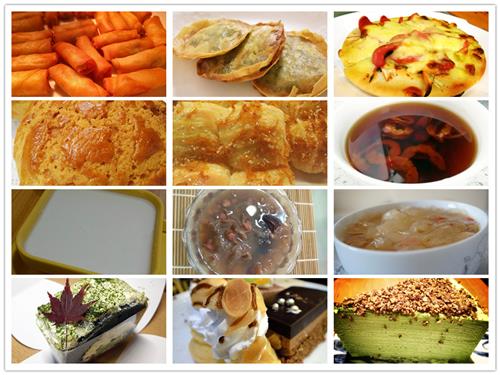What to eat in the winter tonic? This is a major event related to personal health. In fact, as long as you eat these 10 kinds of food after winter, you can make your longevity and health!
potato
Do not underestimate this humble potato, as the common easy-to-store vegetables in the winter, it is the first choice for raising gas.
Potatoes are sweet, flat, and good for the spleen and stomach. They have detoxification, anti-inflammatory, hypoglycemic and lipid-lowering effects, physical health, and anti-aging effects.

radish
Eat radish in summer and eat ginger in winter, do not labor doctors prescribe medicine, longevity people must be inseparable from the winter radish.
Radish water is sufficient, can accumulate lag, eliminate food product, thirst, and expectoration; if you want to thirst and phlegm, help digestion, you can eat raw food; if you want to eliminate food and spleen, you can eat steamed and cooked food, which is quite beneficial.
Millet
In the winter, we must prepare some millet at home. It is absolutely a good tonic, suitable for people with weak stomachs, and more useful for frail elderly people.
Millet porridge is left for a few minutes, and after congealing, the top layer of the millet condenses a layer of membranous matter, which is called “porridge oil†and has the function of protecting the gastric mucosa.
sweet potato
There are many ways to eat sweet potatoes in winter. Each one is good for your health, but you can't eat more.
Sweet potato contains a lot of mucin, which can enhance immunity and eliminate active oxygen. Sweet potatoes contain more calcium and magnesium, so they can prevent osteoporosis. Steamed, boiled sweet potatoes or sweet potato porridge, can play the role of sweet potatoes to replenish the spleen and stomach.
Amaranth
There are seasons of leeks, but it is best to eat in the winter and it is most beneficial to store human yang.
In winter, the temperature is low and the leek is warm. It can replenish kidney qi, boost energy and increase yang.
Chinese cabbage
Chinese cabbage is almost the most common dish in the winter, but it is also true that it is healthy and beautiful.
Chinese cabbage is a crude fiber food that can nourish the stomach, reduce fat, and facilitate heat. It is also rich in vitamin C and has a good skin care and beauty effect.
Yam
Yam is known as “food for the gods†and is a typical dual-purpose food for medicine and food.
Consumption of yam can increase lung qi, which in turn makes the skin delicate and white, and whitens the skin. It's good to fry or stew, but people who get angry or constipated eat less.
Squid
Folks have the saying "Winter, Summer and Summer," which means that it is suitable for squid in the summer and squid for winter.
The eel is delicious, contains more protein, is easy to digest and absorb, can prevent liver and kidney diseases, cardiovascular and cerebrovascular diseases, and can increase the resistance to disease.
Chestnut
As a "red person" in the nut industry, chestnut has a high calcium content and is an excellent calcium supplement food, which is effective in preventing and treating osteoporosis.
Unsaturated fatty acids and vitamins and minerals in chestnut can prevent and treat high blood pressure, anti-aging and longevity. Chestnut can be used as a snack or as a dish, but diabetics should eat less.
Melon
Eat melon, both to promote fat reduction, but also diuresis and humidity. With winter melon soup, you can let you lose weight in the cold weather.
The trace elements zinc and magnesium in wax gourd can promote the growth and development of the human body, keep the spirit full and look ruddy.
Smart Factory - Automation Inspection - Industry 4.0
Smart Factory
Automated Precision Inc. , https://www.apiasean.com